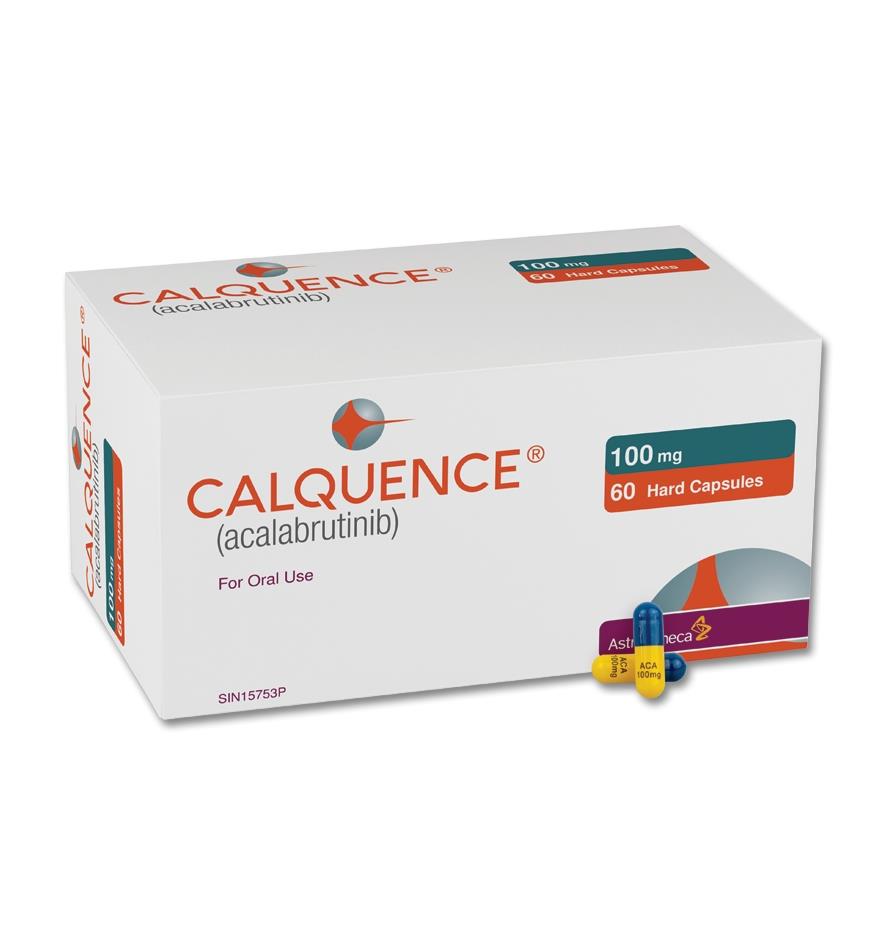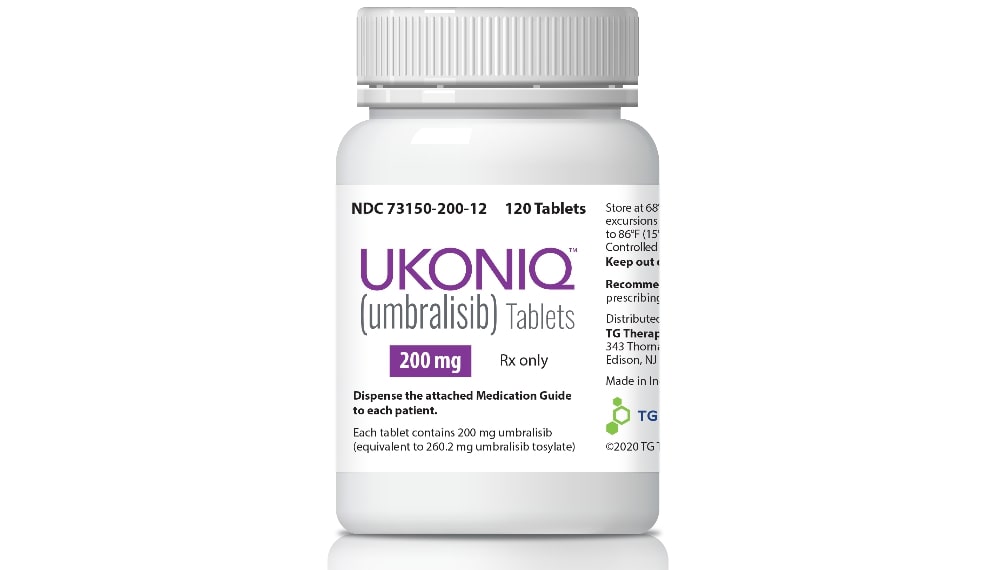Calquence (acalabrutinib) vs Ukoniq (umbralisib)
Calquence (acalabrutinib) vs Ukoniq (umbralisib)
Calquence (acalabrutinib) and Ukoniq (umbralisib) are both targeted therapies used in the treatment of certain hematologic malignancies, but they work in slightly different ways. Calquence is a Bruton's tyrosine kinase (BTK) inhibitor indicated for the treatment of mantle cell lymphoma and chronic lymphocytic leukemia, and it works by blocking BTK, which is a protein that helps some cancer cells survive and grow. Ukoniq, on the other hand, is a dual inhibitor of PI3K-delta and CK1-epsilon and is used for the treatment of marginal zone lymphoma and follicular lymphoma; it targets different signaling pathways that are also crucial for the survival and proliferation of cancer cells. When deciding which medicine is right for an individual, it is essential to consider the specific type of cancer, the patient's overall health, previous treatments, potential side effects, and the advice of the treating oncologist, as each medication has its own profile of efficacy and safety.
Difference between Calquence and Ukoniq
| Metric | Calquence (acalabrutinib) | Ukoniq (umbralisib) |
|---|---|---|
| Generic name | Acalabrutinib | Umbralisib |
| Indications | Mantle cell lymphoma, chronic lymphocytic leukemia, small lymphocytic lymphoma | Marginal zone lymphoma, follicular lymphoma |
| Mechanism of action | Bruton's tyrosine kinase (BTK) inhibitor | PI3K delta and CK1 epsilon inhibitor |
| Brand names | Calquence | Ukoniq |
| Administrative route | Oral | Oral |
| Side effects | Headache, diarrhea, muscle pain, anemia, infection | Increased liver enzymes, diarrhea, fatigue, musculoskeletal pain, rash |
| Contraindications | Hypersensitivity to acalabrutinib or its excipients | Hypersensitivity to umbralisib or its excipients |
| Drug class | Antineoplastic agent, BTK inhibitor | Antineoplastic agent, PI3K inhibitor |
| Manufacturer | AstraZeneca | TG Therapeutics |
Efficacy
Efficacy of Calquence (Acalabrutinib) in Treating Lymphoma
Calquence, known generically as acalabrutinib, is a Bruton's tyrosine kinase (BTK) inhibitor that has shown efficacy in the treatment of certain types of lymphoma, particularly mantle cell lymphoma (MCL). It is approved by the U.S. Food and Drug Administration (FDA) for the treatment of adult patients with MCL who have received at least one prior therapy. Clinical trials have demonstrated that acalabrutinib can lead to a high rate of response in patients with relapsed or refractory MCL. The overall response rate (ORR) in pivotal trials was significant, indicating that a substantial proportion of patients experienced tumor shrinkage or complete remission after treatment with acalabrutinib.
In addition to MCL, acalabrutinib is being investigated for its potential efficacy in other types of lymphoma, including chronic lymphocytic leukemia (CLL) and small lymphocytic lymphoma (SLL). While it is not yet approved for these indications, early clinical studies suggest that acalabrutinib may offer a favorable safety and efficacy profile for patients with these conditions as well.
Efficacy of Ukoniq (Umbralisib) in Treating Lymphoma
Ukoniq, with the active ingredient umbralisib, is a dual inhibitor of phosphoinositide 3-kinase (PI3K) delta and casein kinase-1 epsilon. The FDA has approved Ukoniq for the treatment of adult patients with marginal zone lymphoma (MZL) who have received at least one prior anti-CD20-based regimen and for adult patients with follicular lymphoma (FL) who have received at least three prior systemic therapies. The approval was based on the results of a multicenter, open-label, single-arm trial, which demonstrated that umbralisib achieved a meaningful ORR in both MZL and FL patient populations.
For MZL patients, the efficacy of Ukoniq was particularly notable, with a considerable percentage of patients achieving a partial or complete response to treatment. Similarly, in FL patients, umbralisib showed a promising ORR, indicating its potential as a later-line treatment option for individuals who have exhausted other therapies. The duration of response for patients treated with umbralisib in clinical trials was also encouraging, with many patients maintaining their response for a significant period.
Regulatory Agency Approvals
Calquence
-
European Medical Agency (EMA), European Union

-
Food and Drug Administration (FDA), USA

-
Health Canada

-
Pharmaceuticals and Medical Devices Agency (PMDA), Japan

-
Therapeutic Goods Administration (TGA), Australia

Ukoniq
-
Food and Drug Administration (FDA), USA

Access Calquence or Ukoniq today
If Calquence or Ukoniq are not approved or available in your country (e.g. due to supply issues), you can access them via Everyone.org.
How it works

Make an enquiry
Choose the medicine you want to buy, answer a couple of questions, and upload your prescription to speed things up. We’ll get back to you within 24 hours.


Make an enquiry
Choose the medicine you want to buy, answer a couple of questions, and upload your prescription to speed things up. We’ll get back to you within 24 hours.


Breeze through the paperwork
We'll guide you through the required documents for importing unapproved medicine, ensuring you have all the necessary information.


Get a personalized quote
We’ll prepare a quote for you, including medicine costs and any shipping, administrative, or import fees that may apply.


Receive your medicine
Accept the quote and we’ll handle the rest - sourcing and safely delivering your medicine.

Some text on this page has been automatically generated. Speak to your physician before you start a new treatment or medication.
Let's talk
If you have any questions, call us or send us a message through WhatsApp or email:
Contact us




